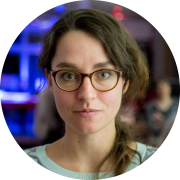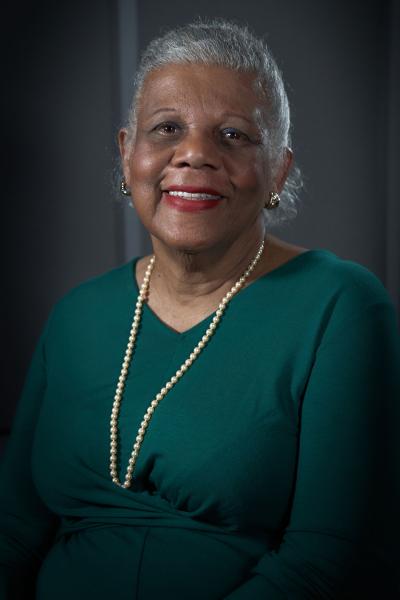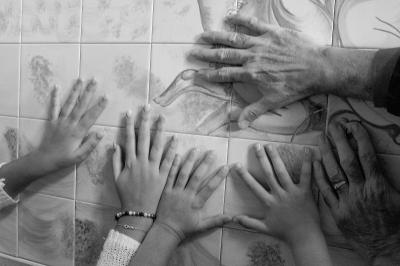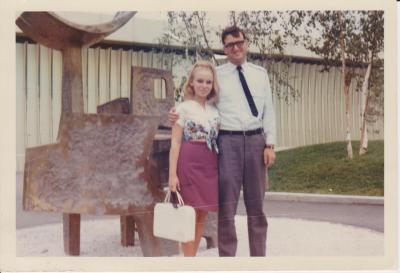Like many young immigrants, Laura left her home country out of desire for adventure. And the whim that brought her to Montréal led to an unexpected passion for social justice.
As part of the Women’s Stories of Immigration project, the MEM – Centre des mémoires montréalaises met with women who have settled in Montréal from elsewhere to hear about their experiences. Our Stories series maps unique life paths that intersect across the city, shaping its history.
—
Laura Noyer
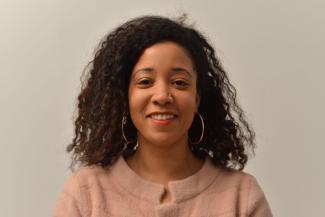
Guadeloupe to France
Laura Noyer - 2 ans

Paris to Montréal
Laura Noyer 2004
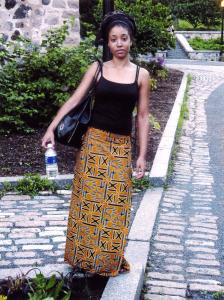
French nationals immigrating to Quebec is nothing new. After the Second World War, Canada, and later Quebec, began laying the groundwork for easy emigration through various intergovernmental agreements. Since then, France has been one of the top countries of origin for immigrants arriving in Quebec. Though Laura arrived in Quebec via France, she identifies more with her Caribbean roots. In 2011, Quebec counted more than 167,000 individuals of Caribbean ancestry.
More recently, the France-Quebec working holiday program (PVT program) has been attracting young people. The program allows 18- to 30-year-olds to travel on a long-term visa (usually 12 months) and authorizes them to work during their stay. In 2017, more than 6,800 young people from France came to Canada on a working holiday visa. In 2004, Laura landed in Montréal via this program as well.
On arriving, driven by the same strong independent spirit as her grandmother and her mother, Laura found work as an au pair with a family of Irish origin. She cared for the children in exchange for room and board, and she learned English. During her time off, she began building a network here in Quebec to break the cycle of solitude and isolation that often goes hand in hand with integration.
Endless possibility
Laura Noyer et son fils

In Montréal, Laura found a human-centred city. She went out to discover all it had to offer, and she met new friends. “Anything is possible in Montréal. Anything there is to do, anything you want to do, you can do it,” says Laura.
Anything is possible, mainly because Laura equipped herself with the tools to succeed. Shortly after she arrived, she started volunteering. She felt at home right away at the Collectif des femmes immigrantes du Québec (Le Collectif), an organization that helps newcomers integrate. There, she met the organization’s president, Aoura Bizzarri, an activist for immigrant women’s rights for over thirty years. They shared common beliefs: the importance of social justice and the value of hard work. In just a few years, Laura moved from a volunteer position to a staff position as project coordinator for job readiness programs and head of the Centre de femmes. And, because all things are possible, she also began an archival studies and museology program. She took a pause from her career after the birth of her son, Timo, in 2013.
Working for a cause
Laura Noyer et sa mère
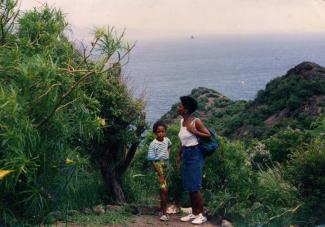
In her ten years at Le Collectif, Laura has witnessed the experience of women immigrants in Quebec firsthand. Not a lot has changed since the organization was founded in 1983, she says. “When I read about that time ... I don’t see much difference between what Aoura was fighting for about 30 years ago and the reality today for these women. They are still subject to systemic racism; [for instance] the women who have to have their equivalencies approved by professional orders once they arrive in Quebec. ... When I get a call from an employer looking to hire an immigrant woman, it's often for a job sewing, or knitting, or cleaning. It’s rarely for a job in administration or mechanical engineering.”
In 2015, more than 63% of university-educated immigrants in Montréal were overqualified for their job, even though economic immigrants are selected on the basis of qualifications. Compared to men, women newcomers bear the brunt of the integration burden by accepting badly paid jobs they are overqualified for, but which they need to support their families. Integration is made more difficult by the challenges related to balancing family and work obligations, including a lack of spots in subsidized daycare. Laura sees these problems every day. The most difficult part of her job is having to tell qualified, experienced women that they will probably have to forget about their dream career.
Laura Noyer is dedicated to her work, and she wants to keep stoking the fire that inspired the organization’s beginnings. “We definitely have a good relationship with our funders,” she laughs, “But there’s still so much work to do for immigrant women, for newcomers in general, so we have to keep taking a stand.” She’ll continue fighting for the cause, armed with values passed down from the women in her life: justice, an open mind, and respect.
BEN SOLTANE, Sonia. « Dans l’intimité familiale des immigrantes. Le travail domestique d’intégration des femmes maghrébines », dans ROBERT, Camille, et Louise TOUPIN (dir.), Travail invisible. Portrait d’une lutte féministe inachevée, Montréal, Remue-Ménage, 2018, p. 71-82.
CZERWINSKI, Natacha. « L’immigration française au Québec est une exception », [En ligne], L’Express Emploi, 26 novembre 2018.
https://www.lexpress.fr/emploi/gestion-carriere/l-immigration-francaise-au-quebec-est-une-exception_2050068.html
IMMIGRATION, DIVERSITÉ ET INCLUSION QUÉBEC. Portrait statistique de la population d’origine ethnique antillaise au Québec en 2011, [En ligne], Gouvernement du Québec, 2014.
http://www.quebecinterculturel.gouv.qc.ca/publications/fr/diversite-ethnoculturelle/com-antillaise-2011.pdf
HOMSY, Mia, et Sonny SCARFONE. Plus diplômés, mais sans emploi. Comparer Montréal : le paradoxe de l’immigration montréalaise, [En ligne], Montréal, Institut du Québec, 2016.
https://www.institutduquebec.ca/docs/default-source/recherche/8447_plusdiplomes_idq-rpt_fr.pdf?sfvrsn=2
LINTEAU, Paul-André. « Quatre siècles d’immigration française au Canada et au Québec », dans JOYAL, Serge, et Paul-André LINTEAU (dir.), France-Canada-Québec. 400 ans de relations d’exception, Montréal, Presses de l’Université de Montréal, 2008, p. 165-181.
MARIE, Claude-Valentin. « Des “Nés” aux “Originaires”. Dom en métropole : les effets de cinquante ans d’une politique publique ininterrompue d’émigration », [En ligne], Informations sociales, 2014/6, no 186.
https://www.cairn.info/revue-informations-sociales-2014-6-page-40.htm#
PVTISTES.NET. « Statistiques 2017 du PVT [Programme Vacances-Travail] », [En ligne], Pvtistes, 1 novembre 2018.
https://pvtistes.net/statistiques-2017-pvt/
